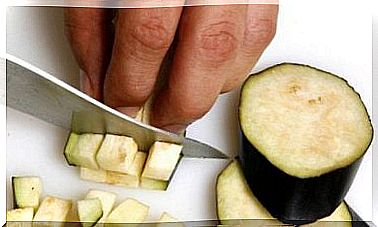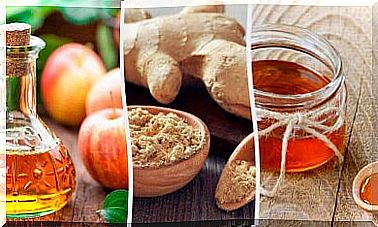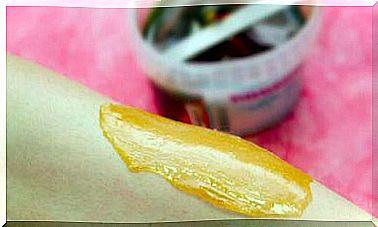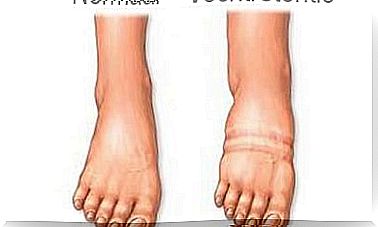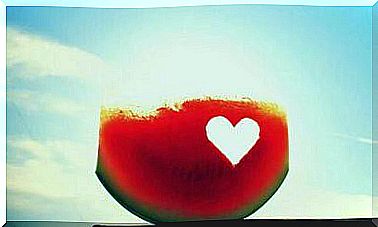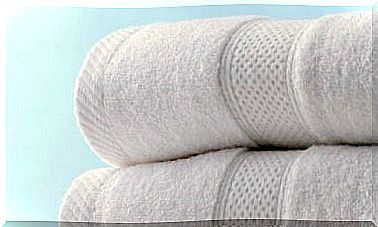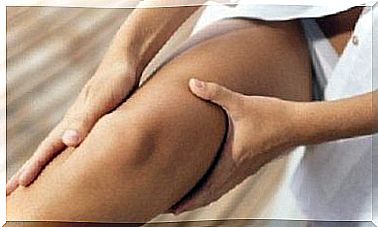Can Diet Improve Hidradenitis Suppurativa?
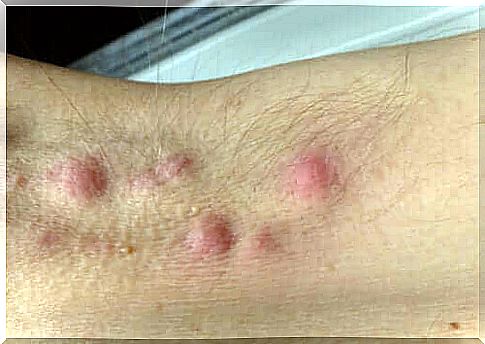
Healthy food is the best ally for the prevention and treatment of many diseases. So why not consider a diet for hidradenitis suppurativa to improve it?
According to the Argentine Society of Dermatology (Spanish link), the treatment of this skin condition is based on a therapeutic guide in which the patient’s diet is part of the general non-pharmacological measures.
The studies don’t provide much evidence. However, omitting certain dairy products, refined foods, sugars and yeasts can improve symptoms.
A number of supplements, such as vitamin D, zinc, and turmeric, may also be beneficial. So let’s take a closer look at how a diet for hidradenitis suppurativa can be helpful.
What is hidradenitis suppurativa?
Hidradenitis suppurativa is a chronic, recurrent, auto-inflammatory skin disease that impairs quality of life. The hair follicle becomes clogged and forms bumps that become inflamed and rupture.
We also know it as reverse acne because the skin lesion appears under the skin. They are common, especially in areas where friction occurs, such as the armpits and groin.
It has a worldwide prevalence of 0.05% to 4% and women between the ages of 20 and 40 are more likely to be affected. Experts are unsure about the cause of the obstruction. However, genetics, obesity, rubbing the skin and smoking are among the risk factors.
How can diet help in the treatment of hidradenitis suppurativa?
dr. Lawrence Gibson says what you eat can affect hidradenitis suppurativa. Nutritious, balanced diets can control overweight and obesity, which are both risk factors.
There is not enough evidence that a specific diet cures hidradenitis suppurativa. However, patients and physicians know the importance of nutritional management in the management of this pathology. Here we will discuss some of the recommendations and progress.
A dairy-free diet
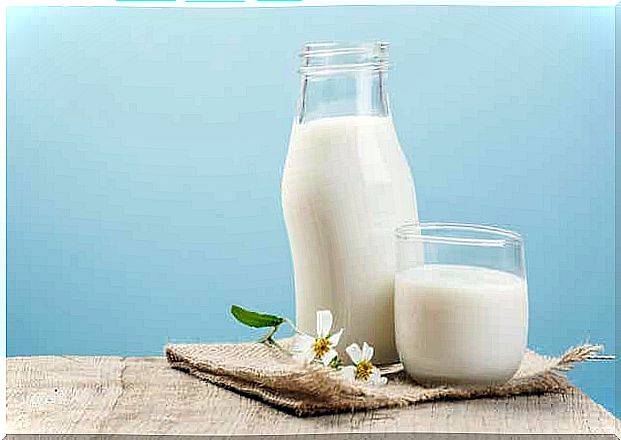
Eliminating dairy products from the diet of someone with hidradenitis suppurativa could be an effective nutritional measure to alleviate the symptoms of the disease.
In the Journal of the American Academic of Dermatology, researchers emphasize that dairy products in general can contribute to acne and HS. Applying a dairy-free diet to 47 patients with the disease improved 83% of the cases. Of the remaining 17%, none of them deteriorated.
Dairy products contain casein, whey and hormones known as androgens, which clog hair follicles. The researchers concluded that a dairy-free diet can reduce new lesions and reduce the symptoms of hidradenitis suppurativa.
Recommendations therefore include excluding milk, fresh cheeses, ricotta, cottage cheese, matured cheeses, ice cream and yogurt. Similarly, you should stay away from heavy cream, buttermilk, and butter, among other things.
A diet with a low glycemic load
A group of experts indicated that foods rich in simple carbohydrates, such as soft drinks, sweets and ice cream, raise blood sugar levels. And as a result, the secretion of insulin. This leads to an increase in androgens and an increase in the occurrence of HS.
To lower the glycemic load of your diet, there are several items that you should eliminate from your diet. These include the following foods:
- sugars
- desserts
- Sugary drinks
- Sweets
- syrups
- corn syrups
- chocolate bars
- Breakfast cereals.
Similarly, to relieve symptoms of hidradenitis suppurativa, you should increase your fiber intake in your diet by consuming more vegetables, legumes, and fruits.
A diet without wheat and yeast
Experts have linked wheat and yeast to an increase in the occurrence of HS symptoms. Saccharomyces yeast is used in the production of beer, wine and CO2 gas for bread dough. Several researchers discovered that this yeast triggers a response in the immune system, causing intolerance.
A small study in 12 patients with hidradenitis suppurativa who followed a yeast-free diet for 1 year showed that the lesions disappeared. It also improved their quality of life. However, when the patients consumed wheat or beer again, their symptoms returned.
Unfortunately, the sample size and lack of a control group do not allow to generalize the results. It is also unclear whether the yeast problem only occurs in patients with wheat intolerance.
Still, recommendations include cutting out fermented alcoholic beverages, such as beer and wine. Just like bread, cake, pizza, soy sauces, dry soups and all foods containing wheat and yeast.
The Mediterranean Diet
The journal Nutrients (link) shows the results of a study in 41 patients with HS who consumed few foods typical of the Mediterranean diet. At the same time, another group of patients who consumed them did not suffer from the condition.
The Mediterranean diet includes vegetables, fresh fruits, whole grains, beans, extra virgin olive oil, fish and seafood. Meanwhile, it reduces the consumption of refined and processed foods. It has a low glycemic load and a high fiber content.
Low calorie diet
It has been observed in a number of studies that many patients with hidradenitis suppurativa are obese and that there is a direct relationship between body mass index and disease severity. dr. Boer published (English link) that low-calorie diets that promote weight loss reduce the occurrence of the condition.
In a retrospective study of obese patients undergoing bariatric surgery, it was found that those who lost 15% of their weight also had a reduction in the severity of HS.
On the other hand, low-calorie diets include foods high in fiber as they produce satiety. Products with a high glycemic load, such as sugars and refined sugars, are excluded.
A vegan diet
Several studies link good gastrointestinal function to skin health. This has to do with the microorganisms that grow in the gut (the gut microbiota). People with a greater diversity of microbiota are those who eat more vegetables.
The North American guidelines for the clinical management of HS published that patients with hidradenitis suppurativa and a low vegetable intake had a lower diversity of microbiota. The control group without HS and a diet rich in vegetables was notable for its greater diversity.
On the other hand , it seems that excluding vegetables belonging to the Solanaceae family can improve symptoms, such as in a number of autoimmune diseases. These include potato, eggplant, tomato, pepper. However, there are no studies to support the information.
What Supplements Can Support the Hidradenitis Suppurativa Diet?
Although there has been little progress in clinical studies of the use of supplements in the treatment of hidradenitis suppurativa, a number of specialists recommend them as adjunctive therapy.
Zinc
Brocard and Dréno found that zinc gluconate at a dose of 90 milligrams per day worked to restore innate immunity in 22 patients with advanced stages of HS. Meanwhile, other professionals recommend 30 to 60 milligrams per day to improve the inflammatory process of acne.
Vitamin D

With skin conditions, you should not get vitamin D through exposure to the sun, but through supplements. Vitamin D also plays an important role in reducing inflammation and experts have discussed its use in HS.
A group of researchers even noted that 63% of patients with HS and vitamin D deficiency showed a small improvement after taking supplements.
They also recommend taking vitamin D through food or as a supplement , rather than receiving it through the sun’s rays, as this can worsen the clinical picture.
Turmeric
A number of studies refer to turmeric’s ability as an antioxidant, anti-inflammatory and immune system regulator. The active compound, curcumin, modulates inflammation-producing compounds known as cytokines.
Turmeric could therefore improve the inflammatory process in hidradenitis suppurativa. Although there are no definitive conclusions about dosage and formulation, experts acknowledge its positive effect.
There is not just one diet for hidradenitis suppurativa
In short, if you have hidradenitis suppurativa and you are considering changing your diet, it is best to consult your dermatologist immediately. That way, the professional can advise you on the type of diet most appropriate for the stage of HS you are in.
It is also a good idea to consult a nutritionist to determine nutritional status and select the right foods in case of food intolerance. At the same time, the specialty professional should consider preparation forms to increase fiber and zinc.
